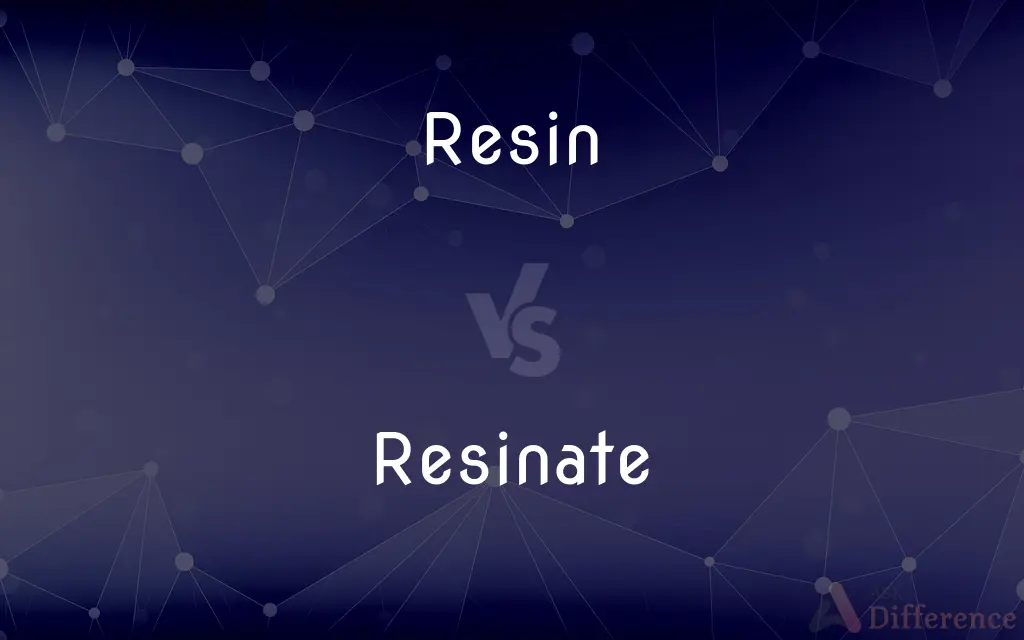Resin vs. Resinate — What's the Difference?

Difference Between Resin and Resinate
ADVERTISEMENT
Compare with Definitions
Resin
In polymer chemistry and materials science, resin is a solid or highly viscous substance of plant or synthetic origin that is typically convertible into polymers. Resins are usually mixtures of organic compounds.
Resinate
To impregnate, permeate, or flavor with resin.
Resin
A sticky flammable organic substance, insoluble in water, exuded by some trees and other plants (notably fir and pine)
Clear resin had oozed to the surface, trickled down, and set
Resinate
(transitive) To treat a container with resin, e.g. by impregnation in order to impart flavour, typically of wine, and to provide a tighter seal on the container.
Resin
A solid or liquid synthetic organic polymer used as the basis of plastics, adhesives, varnishes, or other products
Epoxy resins frequently cause dermatitis
The chassis is constructed of synthetic resin
ADVERTISEMENT
Resinate
(organic chemistry) Any salt of a resin acid
Resin
Rub or treat with resin
Resined canvas
Resinate
Any one of the salts the resinic acids.
Resin
Any of numerous clear to translucent yellow or brown, solid or semisolid, viscous substances of plant origin, such as copal, rosin, and amber, used principally in lacquers, varnishes, inks, adhesives, plastics, and pharmaceuticals. Resins are usually insoluble in water.
Resinate
Impregnate with resin to give a special flavor to;
Greek wines are often resinated
Resin
Any of numerous physically similar polymerized synthetics or chemically modified natural resins including thermoplastic materials such as polyvinyl, polystyrene, and polyethylene and thermosetting materials such as polyesters, epoxies, and silicones that are used with fillers, stabilizers, pigments, and other components to form plastics.
Resin
To treat or rub with resin.
Resin
A viscous hydrocarbon secretion of many plants, particularly coniferous trees.
Resin
Any of various yellowish viscous liquids or soft solids of plant origin; used in lacquers, varnishes and many other applications; chemically they are mostly hydrocarbons, often polycyclic.
Resin
Any synthetic compound of similar properties.
Resin
(transitive) To apply resin to.
Resin
Any one of a class of yellowish brown solid inflammable substances, of vegetable origin, which are nonconductors of electricity, have a vitreous fracture, and are soluble in ether, alcohol, and essential oils, but not in water; specif., pine resin (see Rosin).
Resin
Any of various polymeric substance resembling the natural resins[1], prepared synthetically; - they are used, especially in particulate form, in research and industry for their property of specifically absorbing or adsorbing substances of particular types; they are especially useful in separation processes such as chromatography; as, an ion-exchange resin.
Resin
Any of a class of solid or semisolid viscous substances obtained either as exudations from certain plants or prepared by polymerization of simple molecules
Share Your Discovery

Previous Comparison
Cliff vs. Ledge
Next Comparison
Driving vs. Traveling













































